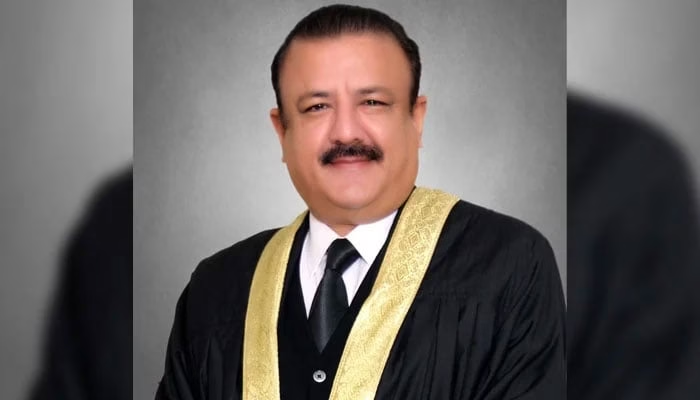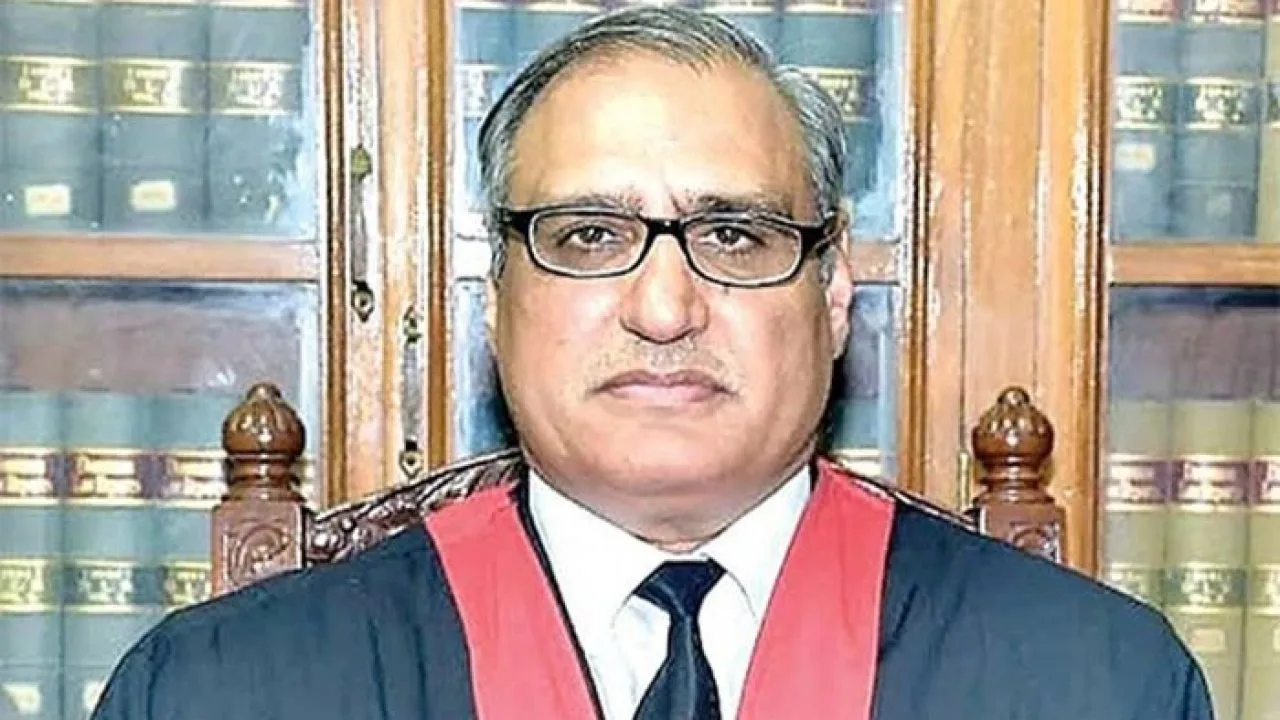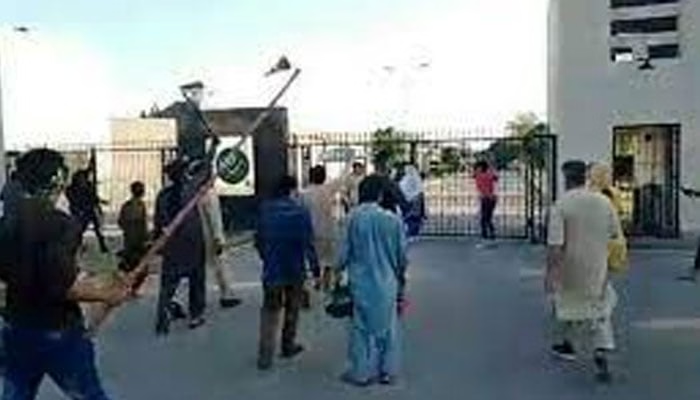The Islamabad High Court (IHC) made headlines this week after a two-member bench barred Justice Tariq Mehmood Jahangiri from performing his judicial duties until the Supreme Judicial Council (SJC) reaches a decision on a petition pending against him. The move has sparked debate in legal circles, drawing sharp criticism from the bar and raising questions about the limits of judicial oversight in Pakistan.
Islamabad High Court’s Decision on Justice Jahangiri
The ruling by the Islamabad High Court came from a divisional bench led by Chief Justice Sardar Muhammad Sarfraz Dogar, accompanied by Justice Mohammad Azam Khan. The bench announced its decision on a petition filed by lawyer Mian Dawood.
According to the court order, Justice Jahangiri has been excluded from all judicial duties until the SJC reviews and decides on the matter of his conduct. Following this, the IHC administration issued a revised duty roster for September 17–19, formally removing him from all benches.
The bench also sought assistance from Attorney General for Pakistan (AGP) Mansoor Awan on the question of whether the petition challenging Justice Jahangiri’s role was maintainable. To ensure fairness, the court appointed Barrister Zafarullah Khan and senior lawyer Ashtar Ausaf as amici curiae.
Reaction from the Legal Community
The Islamabad High Court ruling immediately triggered a strong reaction from the Islamabad Bar Council (IBC). At a press conference, IBC Vice Chairman Raja Aleem Abbasi criticized the decision, calling it “the darkest day in the history of the judiciary.” He argued that preventing a sitting judge from performing his duties is beyond the jurisdiction of the high court and undermines judicial independence.
Abbasi urged the Supreme Court to take suo motu notice of the development, emphasizing that only the Supreme Judicial Council has the authority to review a judge’s conduct under Article 209 of the Constitution. In protest, the IBC announced a complete strike at the IHC and district courts, coupled with rallies to demonstrate opposition to the ruling.
Islamabad High Court and Article 209 of the Constitution
At the core of the controversy lies Article 209 of Pakistan’s Constitution, which stipulates that the conduct of judges of the superior judiciary can only be scrutinized by the Supreme Judicial Council. Critics argue that the Islamabad High Court ruling intrudes upon this constitutional safeguard and sets a dangerous precedent.
Supporters of the decision, however, contend that the IHC bench acted within its jurisdiction to preserve the credibility of ongoing proceedings until the SJC delivers its verdict. They maintain that temporarily barring Justice Jahangiri does not equate to his removal but rather ensures judicial transparency and impartiality.
Broader Implications for Judicial Independence
The decision by the Islamabad High Court has broader implications for judicial independence in Pakistan. According to data shared by the Law and Justice Commission, public trust in the judiciary has fluctuated over the years, with nearly 47% of citizens expressing concerns about judicial accountability in a 2023 survey. Incidents such as this further fuel the debate about balancing transparency with constitutional protections for judges.
The strike called by the Islamabad Bar Council also highlights the deep divisions within Pakistan’s legal fraternity. On one hand, there is a demand for greater accountability of judges to strengthen public confidence. On the other, there is a strong emphasis on safeguarding judicial independence from external influence or internal overreach.
Islamabad High Court and Public Perception
The Islamabad High Court is no stranger to high-profile cases and controversial decisions. Over the past decade, it has played a central role in shaping the legal and political landscape of the country. With the suspension of Justice Jahangiri, the court now finds itself under intense public scrutiny once again.
Observers believe that how the Supreme Judicial Council handles the petition will be crucial in setting a precedent. If the SJC upholds the IHC’s move, it could redefine the scope of accountability mechanisms for judges. Conversely, if the SJC strikes down the ruling, it may reaffirm the exclusivity of its role under Article 209.
The recent decision by the Islamabad High Court to bar Justice Tariq Mehmood Jahangiri has opened a new chapter in Pakistan’s ongoing debate about judicial accountability and independence. While supporters of the ruling see it as a step toward greater transparency, critics view it as an unconstitutional overreach that undermines judicial protections.
As protests mount and the legal community remains divided, all eyes are now on the Supreme Judicial Council. Its forthcoming decision will not only determine Justice Jahangiri’s future but also shape the trajectory of judicial oversight in Pakistan. Ultimately, the episode underscores the delicate balance between holding judges accountable and protecting the integrity of the judiciary — a balance the country’s legal system must continue to navigate carefully.



